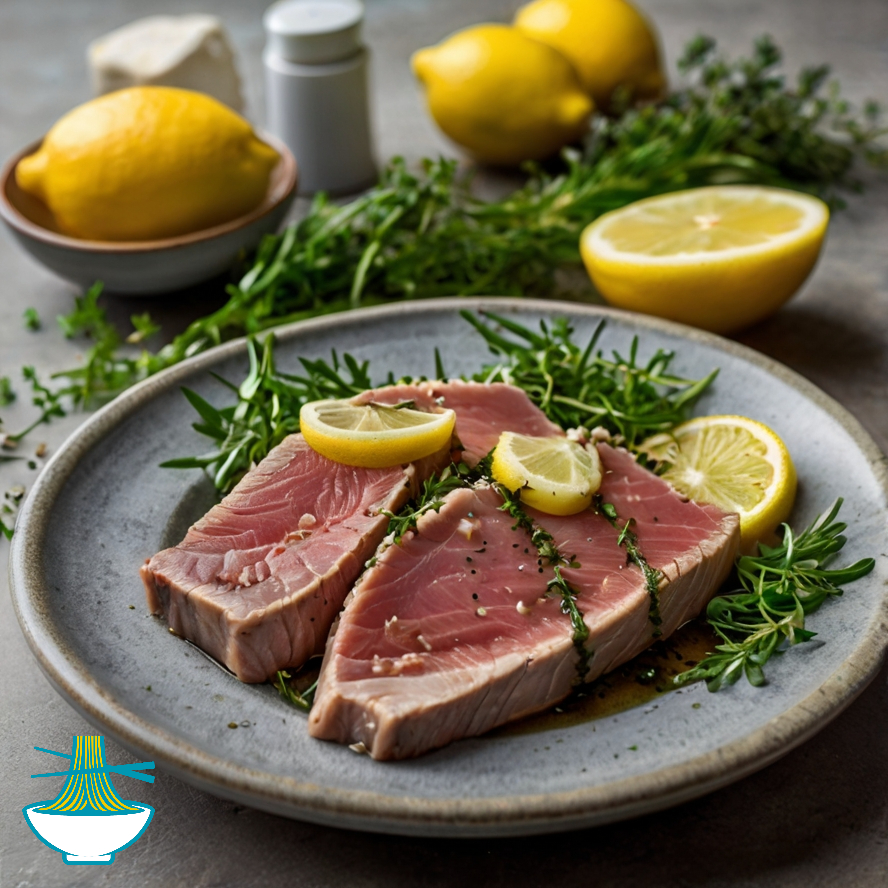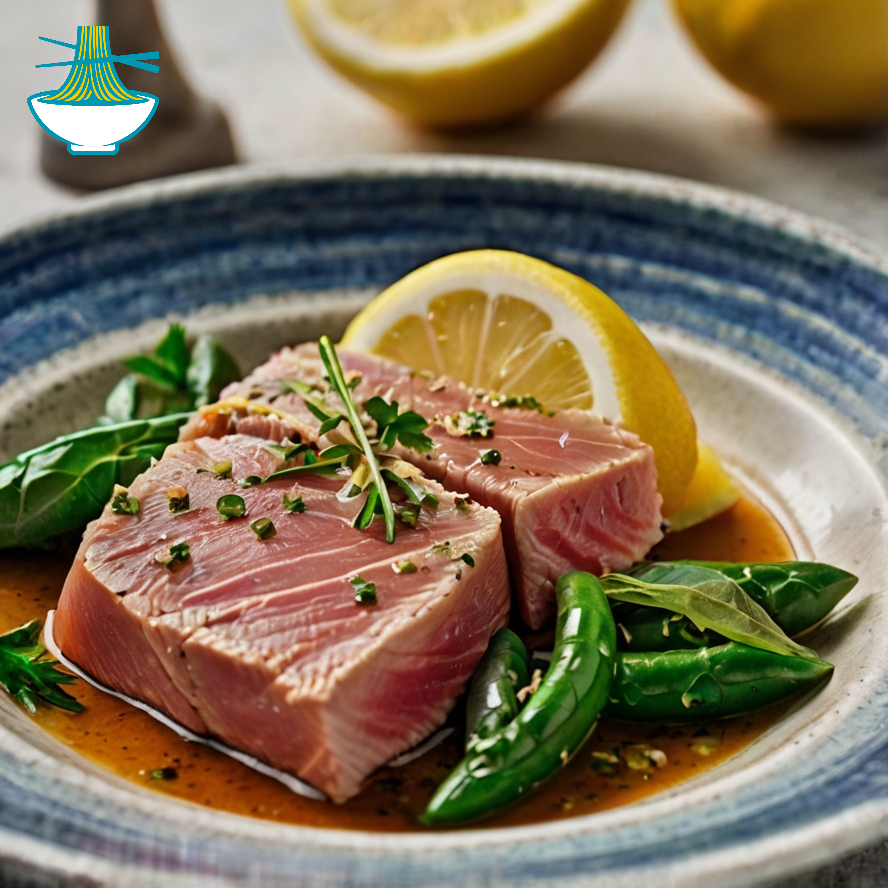Tuna with lemon and herbs is a flavorful dish that highlights the vibrant flavors of Mediterranean cuisine. Featuring canned tuna, this recipe combines lemon juice and fresh herbs for a refreshing quality.
This dish is low in calories and offers significant health benefits. Canned tuna is rich in protein and omega-3 fatty acids, promoting heart health. Lemon juice provides vitamin C, boosting the immune system, while the antioxidants in olive oil and fresh herbs help reduce inflammation. With its quick and easy preparation, this dish is ideal for busy days.

this dish reflects the Mediterranean emphasis on fresh, seasonal ingredients and uncomplicated preparation methods. The use of olive oil and herbs is characteristic of Mediterranean cooking, which values flavor without excessive complexity. This dish is often enjoyed as a quick lunch or a light dinner, particularly in coastal regions where tuna is a staple ingredient.
Ingredients:
- Canned tuna, drained
- Lemon juice
- Olive oil
- Fresh herbs (such as parsley or dill)
- Salt and pepper to taste
Instructions:
1. Mix the drained tuna with lemon juice, olive oil, fresh herbs, salt, and pepper.
2. Serve over a green salad or with whole grain bread.

Nutrition Value:
1. Canned tuna, drained
- Calories: 132 per 3 oz (85 g) serving
- Carbohydrates: 0 g
- Protein: 28 g
- Fat: 1 g
- Sodium: 300 mg
- Cholesterol: 40 mg
- Vitamins: B vitamins (especially B12)
- Minerals: Selenium, potassium, iron
- Nutritional Benefit: High in protein and low in fat, canned tuna provides essential omega-3 fatty acids, vitamins, and minerals that support heart health and muscle function.
2. Lemon juice
- Calories: 4 per 1 tablespoon (15 ml)
- Carbohydrates: 1 g
- Protein: 0 g
- Fat: 0 g
- Sodium: 1 mg
- Cholesterol: 0 mg
- Vitamins: Vitamin C
- Minerals: Potassium
- Nutritional Benefit: Rich in vitamin C, lemon juice boosts the immune system and aids in the absorption of iron. It also adds a refreshing flavor with minimal calories.
3. Olive oil
- Calories: 119 per 1 tablespoon (15 ml)
- Carbohydrates: 0 g
- Protein: 0 g
- Fat: 14 g
- Sodium: 0 mg
- Cholesterol: 0 mg
- Vitamins: Vitamin E
- Minerals: Iron
- Nutritional Benefit: Olive oil is a source of monounsaturated fats, which are heart-healthy. It also contains antioxidants and vitamin E, which can help protect against inflammation and oxidative damage.
4. Fresh herbs (such as parsley or dill)
- Calories: 1 per 1 tablespoon (2 g)
- Carbohydrates: 0.2 g
- Protein: 0.1 g
- Fat: 0 g
- Sodium: 1 mg
- Cholesterol: 0 mg
- Vitamins: Vitamin A, C, K
- Minerals: Calcium, iron, potassium
- Nutritional Benefit: Fresh herbs are low in calories and rich in vitamins and minerals. They offer antioxidant properties, support digestion, and add fresh flavor without added calories or sodium.
5. Salt and pepper to taste
- Calories: 0 (for minimal amounts)
- Carbohydrates: 0 g
- Protein: 0 g
- Fat: 0 g
- Sodium: Varies (salt is high in sodium)
- Cholesterol: 0 mg
- Vitamins: None
- Minerals: Salt provides sodium; pepper contains small amounts of iron and potassium
- Nutritional Benefit: While salt adds flavor, it should be used sparingly to avoid excessive sodium intake. Pepper adds minimal calories and provides antioxidants and potential digestive benefits.


Comments